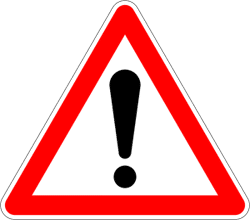Content Warnings

Q: What is a content warning?
A content warning, previously known as a ‘trigger warning’ is a small spoiler that warns the reader what kind of potentially traumatic scenes the story contains.
Q: Why would you use such warnings?
A: Because a lot of people suffer from PTSD, post-traumatic stress disorder. Reading about events that remind them of their trauma can potentially cause them real harm. By using these warnings, I give people a chance to decide whether or not this story is for them.
What makes PTSD different from ‘having gone through some difficult periods in life’ is that PTSD is a disorder. It’s not just a few bad memories and unhealthy coping mechanisms, because we all have those.
Post-traumatic stress disorder is when your trauma response becomes pathological and impacts your ability to function in an everyday setting. PTSD flashbacks can send sufferers into deep depression, destructive behaviour, even psychosis. I don’t have PTSD myself, but people close to me do, and I know the harm it does to a person.
Q: But these are spoilers! I don’t want my story spoilt before I read it.
A: Then don’t read the CWs. It’s as simple as that. They are hidden on my website and they will be found at the end of any book I publish. They won’t affect your reading experience unless you look them up or browse to the end before you start reading.
If you don’t need content warnings, consider yourself lucky. All it takes is one traumatic experience — whether it’s by the hands of another human or a pure accident — and you may find yourself in the same situation: a victim of your own brain’s dysfunction.
Q: From a writer’s point of view — isn’t this self-censorship?
A: Quite the contrary. By putting CWs on my work I can write whatever I like. People who rather not read that kind of content know to stay away. I much rather have people just not read my story, than be harmed by my words.
Besides, some readers want to avoid certain elements, not because of trauma, but because of personal preferences. Like, some people just rather not read about a child faring badly or an animal getting killed. If a reader does not like the elements in a specific story, they are not a good match for that book. I don’t want them to be disappointed in the experience, and I also don’t want them to leave a poor review because of their personal preferences. Better for both of us that they pick a different read.
Another benefit to using content warnings is attracting readers. No, I’m not joking. Some readers search out specific content warnings because they do want to read books with that particular element.
But again, readers who would rather not have their books spoilt are completely free to avoid the content warnings.
Rono's Debt
- Burns
- Injuries
- Torture
- Exposed bones
- Brutal violence
- Death
- Death of a parent
- Robbery
- Sharp weapons
- Oppressive/narcissistic mentor/parent figure
The Draugr (A Discovery of Writers)
- Disease
- Starvation
- Deep water
- Death
- Suicide
- Brutal violence
Nakōdo
- Animal in danger (escapes unharmed)
- Person in danger (escapes unharmed)

